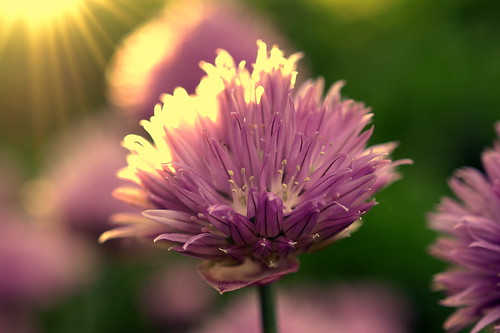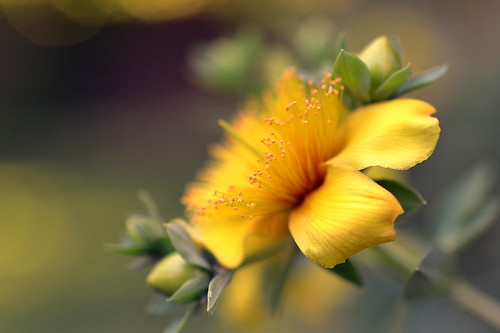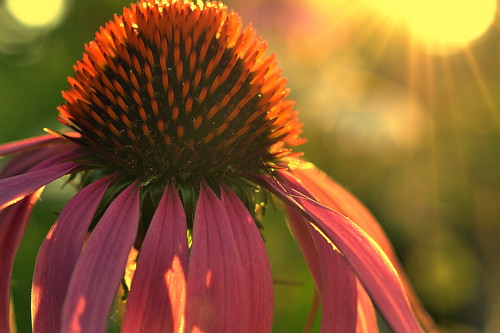 Over 15 years, I've made huge leaps. Yet each leap contained countless small steps. The path from self-aversion to self-compassion is gradual. It's hard to pinpoint a single moment, but eventually I had appropriate tools and enough practice, and my heart shifted. When I revert to old habits, I trust there's a safe space within me: I re-connect with breath and awareness.
Over 15 years, I've made huge leaps. Yet each leap contained countless small steps. The path from self-aversion to self-compassion is gradual. It's hard to pinpoint a single moment, but eventually I had appropriate tools and enough practice, and my heart shifted. When I revert to old habits, I trust there's a safe space within me: I re-connect with breath and awareness.
In last night's mindfulness class, I shared a story about my journey. For years, I looked externally for approval. I asked my loving husband repeatedly some version of "Am I okay?" His reassurance was never enough, and not because he wasn't genuine, but because I was looking in the wrong place. What I needed—in the core of my being—was my own approval: my own love and acceptance. And once I found this, I stopped asking him those questions, because I trust that I'm my own anchor; my own friend.
One of my students responded, "How did that transformation happen? Can you describe it?" These processes are difficult to pinpoint. There were many small steps along the way, and the way is zig-zagged, not straight. But I made a commitment: I truly wanted to befriend myself. My tools were meditation, journaling, therapy, self-portraiture, gardening, mindfulness, listening, and being. During one of our unplugged sabbaticals, I went out for a run to the end of the island, not a single person in sight. I sat on a rock and sobbed, feeling old and new wounds. This experience didn't provoke shame nor did it provoke external focus: I didn't want to hide nor did I need help. I could stay with myself. I trusted that everything I need is inside me. As my meditation practice deepened, so did this sense of trust. (I still need human connection—love, hugs, and support—but my true ground comes from within.)
Small steps have huge impact. Small steps pave paths of great awakening. Each person has their own journey; their own deepest intentions. What's most important is to listen to our own heart and then begin: take the next small step and then the next. Forgive ourselves when we falter—which we will—and have the courage to begin again. Bit by bit: this is how we change.
With this in mind, I created two short guided-meditations. Small steps toward awareness:
--
E-Course: Coming Home to Yourself | Monthly Mindfulness | About Joy |
Guided Meditations | Facebook Page | Photography
 I'm deeply grateful for my new career: As a mindfulness teacher, I can’t escape my own crap. I’m continually called out, not by people but by awareness itself. When I prepare a class on self-compassion, I see multiple ways in which I’m harsh or judgmental, and then I choose differently: I practice forgiveness. When the topic is gratitude, I notice many ways that I protect my heart, and then I choose differently: I practice generosity.
I'm deeply grateful for my new career: As a mindfulness teacher, I can’t escape my own crap. I’m continually called out, not by people but by awareness itself. When I prepare a class on self-compassion, I see multiple ways in which I’m harsh or judgmental, and then I choose differently: I practice forgiveness. When the topic is gratitude, I notice many ways that I protect my heart, and then I choose differently: I practice generosity.
I forget and remember hundreds of times each day. Earlier, I had three projects going and felt anxious about time. As part of my workflow, I edited a guided meditation and then listened to my own words, which returned me to awareness: What’s most important? I focused my attention and softened my heart. (I also smiled at myself: met my own crap with kindness.)
We often push ourselves, past exhaustion, when what we most need—as people, businesses, and society—is rest, creativity, compassion, awareness, and clarity. Yet to have compassion for others, we must first have it for ourselves. It’s okay to rest, laugh, and play. It’s okay to make mistakes. Life requires honest effort; it also requires gentle forgiveness.
If you want to practice a different habit—a habit of self-compassion—listen to this short guided-meditation:
--
E-Course: Coming Home to Yourself | Monthly Mindfulness | About Joy |
Guided Meditations | Facebook Page | Photography
 Yesterday, I spent two hours in my yard. I made new flower beds last fall, using compost and cardboard. I worked in one bed: digging out dandelions (how do they still exist in no-light conditions?), cleaning grass from edges, and loosening soil. It felt good to place my hands in dirt; to connect with the earth. It also felt good to be outside: to hear birdsong and talk with neighbors.
Yesterday, I spent two hours in my yard. I made new flower beds last fall, using compost and cardboard. I worked in one bed: digging out dandelions (how do they still exist in no-light conditions?), cleaning grass from edges, and loosening soil. It felt good to place my hands in dirt; to connect with the earth. It also felt good to be outside: to hear birdsong and talk with neighbors.
After planting groundcover in the front bed, I walked into the backyard. My intention: obtain an overview of my other garden spaces. But my “overview” turned into a focused mission: get rid of weeds. I was hijacked by some primal part of my brain, and although I was tired, I went to the garage for a trowel and began digging out weeds. Once I started looking, I saw weeds everywhere.
I credit my mindfulness practice with bringing me back—back to patience, perspective, and gratitude. I dropped the trowel, stood up, and walked slowly around the yard. Having released my grip, both literally and figuratively, I felt ease and wonder. I looked at copious plants, in different states of development. I saw possibility: open spaces where I can transplant or plant anew. I felt satisfaction with my careful work in the front bed.
Gardening provides me important life lessons. Here are a few from yesterday:
1. When I focus on weeds, I ignore beautiful flowers. Where I regularly place my attention becomes the habit of my mind. When I cultivate peace, compassion, and generosity, I feel better. When I feed resistance, irritation, and judgment, I feel worse. Sometimes I incorrectly believe there’s no choice: I see only weeds and work angrily to get rid of them. Most times, I recognize the choice: yes, there are weeds—in the ground and in my mind—which I'll never eradicate, but I can be with them differently, and I can also consciously savor the flowers.

2. Everyone has weeds. When I inhabit the small-mind of ego, I take things personally. My thoughts feel real but aren’t true: “My yard is the only one with weeds—it’s a personal failing; I'm the only person who feels shame and inadequacy.” These untrue thoughts isolate me when I most need connection. We all have weeds. We all feel pain. It’s part of our shared humanity. Deep connection comes when we show each other our “weeds” and accept one another as the beautiful, imperfect creatures that we are.
3. Persistent effort is important; patience is even more important. My garden brings me satisfaction, both in short-term effort and long-term results. Still, I get tugged by impatience: I want all the weeds gone now; I want all the planting done now. These are just thoughts. And they aren’t actually true. My true intentions: to enjoy my experience; to feel satisfied but not exhausted; to work, not from fear or anger, but from love and creativity. This requires patience. I need to put in effort, but I also need the gentle reminder that everything takes time.
--
E-Course: Coming Home to Yourself | Monthly Mindfulness | About Joy |
Guided Meditations | Facebook Page | Photography
 Four months after mom died, I began my volunteer work in prison. During our mindfulness sessions, we sit in a circle, volunteers and inmates together. We begin with meditation and then check in. The check-in is group meditation: each person shares from the heart while the group listens, in a spacious, deep way.
Four months after mom died, I began my volunteer work in prison. During our mindfulness sessions, we sit in a circle, volunteers and inmates together. We begin with meditation and then check in. The check-in is group meditation: each person shares from the heart while the group listens, in a spacious, deep way.
My first few check-ins were raw: the relationship between meditation and grief. I didn’t hold back; I let myself be vulnerable. After everyone shares, there’s time for general discussion. One inmate (I’ll call him “R”) looked right at me and told a story from his previous incarceration.
He went to a parole hearing, not expecting much but received wonderful news: he would be released in a week. He'd be released! R was beyond happy; he was giddy. When he returned to his cell, there stood “white shirts.” (Blue shirts are guards; white shirts are administration.) R immediately thought, “Oh no, something happened and they reversed the decision. I won’t be released.” But that wasn’t the news. The two men in white shirts said, “We’re sorry son, but your mom has died.” This took his breath away. His mom was his best friend. She was the first person he wanted to tell about release. On the very same day, two extremes occurred: he received freedom and his mother lost her life. Through tears, he said—still looking right at me—that for the next week he bounced repeatedly between joy and grief. And this juxtaposition helped him heal. He hoped that I could find the beauty and growth within grief. This was his genuine wish for me.
The whole group silently bore witness to this exchange. Both me and R in tears. Vulnerable, brave, raw, and real. A group wish for growth and healing within pain. A wish for insight within grief.
Only now, a year later, do I fully understand R’s words. I understand how sadness and gratitude exist in the same space of my heart. To love fully means to grieve fully. Once the heaviness lifts, there’s spaciousness, gratitude, and even joy. When I'm tugged by heaviness, I allow for tears—for sadness—yet I also allow for ease and gratitude. I smile as I think of mom (and Patrick and Mary and Grandma). I’m deeply grateful they were in my life; that I knew and loved them for even a short time.
I’m equally grateful for the compassion, wisdom, and vulnerability I witness in prison. In an institution that actively de-humanizes people, I observe humanity and caring in unique and beautiful ways. Greg Boyle writes, “Compassion is not a relationship between healer and the wounded. It’s a covenant between equals.” My prison sangha is just that. And this would make my mom smile.
--
E-Course: Coming Home to Yourself | Monthly Mindfulness | About Joy |
Guided Meditations | Facebook Page | Photography
 Over 15 years, I've made huge leaps. Yet each leap contained countless small steps. The path from self-aversion to self-compassion is gradual. It's hard to pinpoint a single moment, but eventually I had appropriate tools and enough practice, and my heart shifted. When I revert to old habits, I trust there's a safe space within me: I re-connect with breath and awareness.
Over 15 years, I've made huge leaps. Yet each leap contained countless small steps. The path from self-aversion to self-compassion is gradual. It's hard to pinpoint a single moment, but eventually I had appropriate tools and enough practice, and my heart shifted. When I revert to old habits, I trust there's a safe space within me: I re-connect with breath and awareness.



